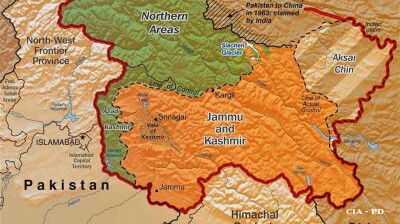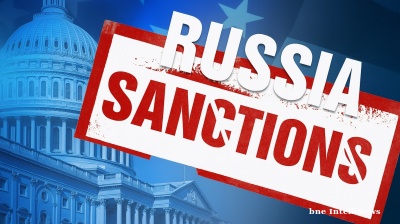Ukraine’s Roma population are fighting side by side with ethnic Ukrainians against Russia, but their families, including those who have fled to other countries to escape the war, still face discrimination.
Zeljko Jovanovic, president of the Roma Foundation for Europe, talked in an interview with bne IntelliNews of the entrenched discrimination that Ukraine’s Roma community continues to face despite their significant involvement in the Ukrainian defence forces against Russia. He calls for the country’s Roma minority to be taken into account both when supporting Ukraine during the war, and in the reconstruction afterwards.
Jovanovic highlighted the contribution made by Ukrainian Roma to the war effort. Around a quarter of all respondents interviewed for a study by the Roma Foundation said they had family members serving in the military, of which a third were volunteers.
Despite the persistent discrimination against Roma, recent events have challenged the negative view of the Roma minority view in Ukraine.
“The study found that Roma – despite facing discrimination before and during the war – are fighting at the front lines in high numbers, many as volunteers, to defend Ukraine against Russian aggression. Moreover, Roma are proud of their willingness to risk their lives for the nation’s defence,” says the report, 'Fighting for a fairer future'.
Among those who fought bravely for Ukraine are soldiers like Viktor Ilchak, who has been with the Ukrainian army for almost 10 years, part of the long fight against Russia in the east of the country before the full-scale invasion in 2022. Ilchak was honoured for his bravery by the authorities in his hometown Uzhhorod. He told the Roma Foundation he was proud to be a Roma soldier, but also talked of the difficulties he and his family face.
Families face discrimination
Ukraine's Roma minority are suffering as a result of Russia's brutal invasion of the country. Yet as Roma citizens, alongside ethnic Ukrainians, fled the conflict, they also encountered discrimination at borders and in internally displaced persons (IDP) shelters, a reflection of persistent prejudices.
“Somehow you have a dual reality of Roma in Ukraine. On one side Roma soldiers are considered brothers in arms, but a significant proportion of their families and friends are being treated in a humiliating way,” said Jovanovic.
Many Roma face challenges with personal documentation and property papers, which could hinder their ability to rebuild their lives post-war. Almost two thirds of the survey’s respondents said they had no official documentation of housing ownership, meaning they could not claim compensation.
Internally displaced Roma have struggled to register, due to a system that is “neither effective in all regions nor accessible to all citizens”, according to the report. Specifically, it depends to a large extend on access to the internet and to legal documentation, both of which are issues for Ukraine’s Roma minority.
The situation is particularly acute in the Zakarpattia region, home to half of all internally displaced Roma, but where only one quarter have access to IDP registration.
Household finances have suffered as the war has disrupted small-scale trade, low-skilled jobs and the collection of recyclable waste, which were the main income sources for Roma before the war. As a result, two thirds of respondents reported a decrease in income.
Ensuring Roma children's participation in education is critical, as the war has already significantly disrupted their schooling, commented Jovanovic. However, the survey reveals that in the Zakarpattia region almost a quarter of Roma children do not attend school, even though it is considered a relatively safe region.
Racist attacks
In the year preceding Russia’s invasion, multiple attacks on Ukrainian Roma, many of them involving far-right groups, were reported; the problem was so bad that a series of protests were organised in several European cities to draw attention to plight of the Roma community.
In the years leading up to the war, one particularly egregious event involved a pogrom in Izmayil close to the city of Odesa, targeting the entire Roma community after the murder of a nine-year-old girl was blamed on one of its members. In April 2018 a neo-Nazi group violently attacked a Roma camp in a park in Kyiv.
These attacks on the Roma minority were not isolated incidents but were part of a broader pattern of discrimination in Ukraine and countries across Europe, according to Jovanovic.
He argues that such discrimination is unacceptable for a country aspiring to European values and EU membership.
“It is important to remember that Ukraine and its allies are fighting for shared values, such as freedom, equality, justice and inclusion, that extend beyond the country’s borders. These values are only successfully embedded in a society if they express themselves in the treatment of its most vulnerable citizens,” says the report.
However, it adds, “Examples show that too often the most vulnerable groups are overlooked: a recent public poll on the discrimination of different social groups in the Ukrainian armed forces did not include Roma.”
Concerning Russian President Vladimir Putin’s spurious claim that the unprovoked invasion of Ukraine was a ‘de-Nazification’ exercise, the Roma Foundation report argues: “Improving the situation of Roma might be one of the strongest rebuttals to Vladimir Putin’s narrative about ‘denazification’ as a reason for the war. Fair treatment of Roma would help refute Russian claims that Ukraine’s ‘Nazi’ government disregards minority rights.”
Post-war reconstruction and Roma rights
Reconstruction efforts must prioritise not just physical rebuilding but also the rights and documentation of Roma individuals, argued Jovanovic.
Discussions with Roma in Ukraine revealed not only a strong sense of patriotism but all an expectation that their situation will be improved post-war.
“That is the most important message of our report: reconstruction of Ukraine cannot mean that the situation of Roma goes back to the pre-war time – to again have the attacks of the far right, again have pogroms, again have violence,” said Jovanovic.
Past wars have shown that typically in post-conflict situations, the level of nationalism increases. “That nationalism cannot lead again to the situation [before the war] if Ukrainian and Ukrainian leaders are to remain true to their promises of standing for European values,” he said.
Including Roma in the reconstruction will not only benefit members of the minority, it will also help Ukraine as a whole as it rebuilds its economy.
“Ukraine has had a declining population for decades and is currently experiencing drastic demographic shifts as a result of the war. The pre-war population of 43mn has been reduced to an estimated 28mn-34mn, leading to an ageing society and a shrinking workforce. Roma are the youngest ethnic group,” says the report.
“Many speak multiple languages and they have proven to be adaptable, entrepreneurial and resilient. With proper investment in education, training, employment and entrepreneurship, the Roma will be well equipped to make a meaningful contribution to Ukraine’s economic recovery.”
But this can only happen with efforts to end systemic discrimination, and include Roma in Ukraine’s future reconstruction after their heroic contribution to the country’s defence.
Jovanovic concluded: “Our message is Ukraine needs to be rebuilt in such a way that the society treats the Roma as equal and gives them a fair chance to recover and prosper afterward in the new Ukraine.”
Features

BEYOND THE BOSPORUS: Prosecutors make move on “fictitious export schemes” of Istanbul Gold Refinery
Observers point to intra-regime gangs seizing each other’s wealth, remember Erdogan’s “Hello Fatih” phone calls and ponder whether wanted man Turgay Ciner is in London.

Taliban visit to India upsets Pakistan, signals New Delhi's changing Afghan posture
Coinciding with the visit, Pakistan conducted military operations inside Afghanistan, followed by airstrikes on multiple border towns. Retaliation against Pakistan's police training facilities and border outposts followed.

Pakistan’s India-shaped chip on the shoulder, and why a peaceful coexistence is as elusive as ever
Pakistan must first redefine how it sees India - not solely as a threat to be contained but as a neighbour with whom coexistence is unavoidable. That psychological leap has eluded generations of Pakistani leaders.

Trump shocked by China’s move on rare earths, threatens more 100% tariffs
"Some very strange things are happening in China!" Trump wrote in a post on his Truth Social account on October 10, adding "They are becoming very hostile."




